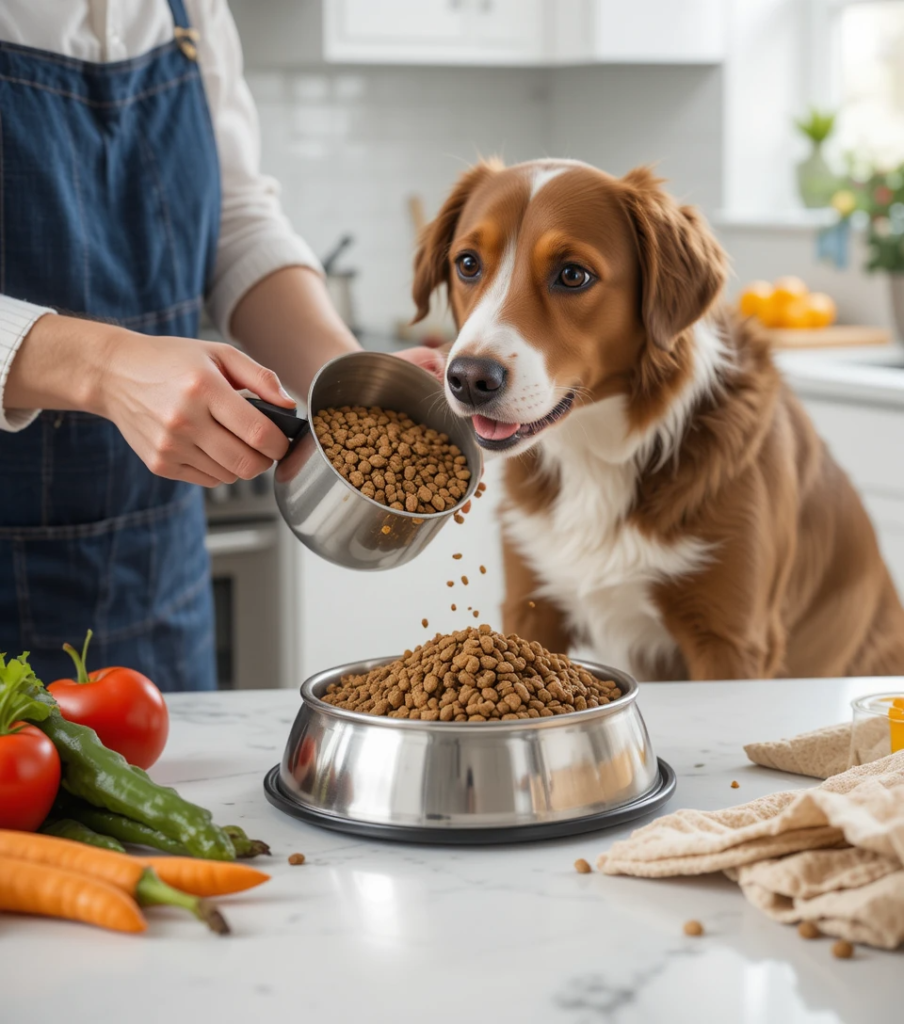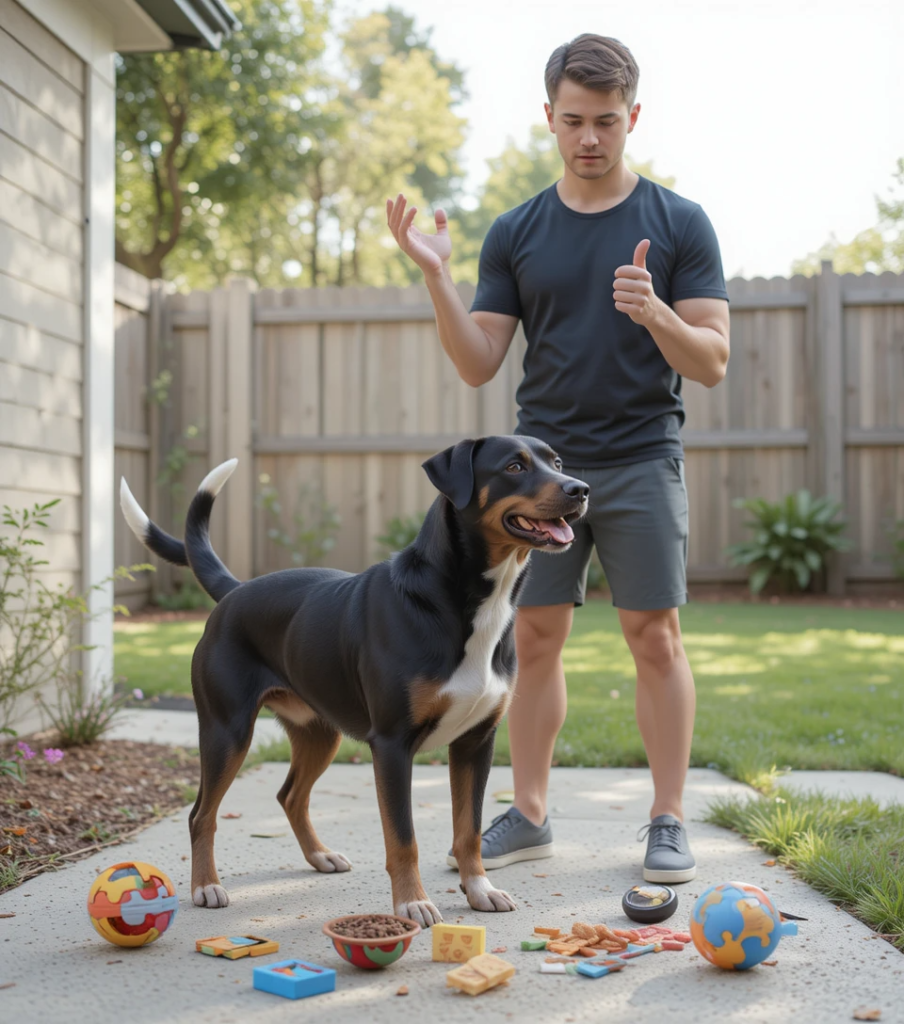Caring for a dog goes far beyond feeding and walking—it’s about building a lifelong bond filled with trust, joy, and mutual respect. Whether you’re a first-time dog parent or a seasoned pet lover, understanding your dog’s physical, emotional, and social needs is essential for their well-being. This guide will walk you through practical, loving tips that every dog owner truly needs.
1. Know Your Dog’s Breed and Personality
Every dog breed has its own unique temperament, energy level, grooming needs, and health considerations. Understanding your dog’s breed helps you tailor your care routine effectively.
- Small breeds (like Chihuahuas) often require warmth and gentle handling.
- High-energy dogs (like Border Collies) thrive on mental and physical activity.
- Large breeds may be prone to joint issues and need specific diets.
🔎 Tip: Research your dog’s breed or consult your veterinarian to understand their behavior and care needs better.
2. Provide a Balanced, Nutritious Diet

A healthy dog starts with proper nutrition. Choose high-quality dog food that meets your dog’s age, size, and activity level. Avoid human food, artificial fillers, and low-grade ingredients.
- Puppies need calorie-rich food for growth.
- Adult dogs require a stable, balanced diet.
- Senior dogs may benefit from joint-supporting supplements.
💡 Pro Tip: Always provide fresh water and consult your vet about portion sizes and dietary supplements.
3. Establish a Consistent Grooming Routine
Grooming is more than keeping your dog clean—it prevents infections, mats, and skin issues.
- Brushing helps reduce shedding and improves coat health.
- Bathing should be done every 4–6 weeks (or as needed).
- Nail trimming, ear cleaning, and anal gland checks are also essential.
🛁 Reminder: Use pet-safe grooming products designed specifically for dogs.
4. Ensure Regular Vet Visits and Vaccinations
Routine vet checkups help catch potential health problems early. Vaccinations protect your dog from deadly diseases like rabies, parvo, and distemper.
- Schedule annual wellness exams.
- Keep up with the vaccination schedule and flea/tick prevention.
- Discuss spaying/neutering if applicable.
📅 Health Hack: Create a care calendar to track appointments and vaccinations.
5. Daily Exercise and Physical Activity
Dogs of all ages need regular exercise to stay physically and mentally fit.
- Walk your dog at least 30 minutes a day.
- Engage in playtime with balls, frisbees, or agility toys.
- Let your dog socialize at a dog park or with other pets.
⚽ Fun Fact: A well-exercised dog is less likely to show behavioral problems like barking or chewing.
6. Mental Stimulation and Training

Mental enrichment is just as vital as physical exercise. Dogs are intelligent and crave stimulation.
- Teach basic obedience commands like sit, stay, and come.
- Use interactive toys and puzzle feeders.
- Practice positive reinforcement training to encourage good behavior.
🧠 Bonus: Short, consistent training sessions build confidence and trust.
7. Create a Safe, Comfortable Living Space
Your dog needs a space that’s safe, clean, and comforting.
- Use gates or crates for safe boundaries.
- Keep dangerous items (like toxic plants, cords, and chemicals) out of reach.
- Provide a soft dog bed in a quiet, cozy spot.
🏠 Tip: Dogs thrive on routine—try to keep feeding and sleeping schedules consistent.
8. Practice Consistent, Loving Discipline
Dogs learn best through kindness and structure. Harsh punishment can damage trust and lead to fear-based behaviors.
- Use gentle corrections followed by praise.
- Redirect unwanted behavior (e.g., chewing) to acceptable alternatives (e.g., chew toys).
- Avoid yelling or physical discipline.
❤️ Golden Rule: Reward the behavior you want, ignore what you don’t.
9. Dental and Hygiene Care
Dental disease is one of the most common but preventable issues in dogs.
- Brush your dog’s teeth several times a week.
- Offer dental chews and vet-approved oral rinses.
- Maintain hygiene with regular baths, ear cleaning, and paw inspections.
🦷 Tip: Watch for signs like bad breath or gum redness—these could indicate dental problems.
10. Strengthen the Human-Dog Bond
Beyond care, your dog craves your presence and love. Strong relationships are built through time, trust, and shared experiences.
- Cuddle, talk to, and play with your dog daily.
- Take your dog on adventures—parks, hikes, or beach trips.
- Celebrate small wins like successful training sessions.
🤝 Final Thought: The more love you give, the more your dog will thrive.
✅ Conclusion
Caring for a dog is one of life’s most rewarding experiences. By meeting their physical, emotional, and mental needs, you ensure a happier, healthier life for your furry companion. These loving tips aren’t just about care—they’re about connection, responsibility, and joy. Embrace each moment, and your dog will love you even more for it.
❓ Top 10 FAQs About Dog Care
- What are the basics of proper dog care?
Proper dog care includes nutrition, exercise, grooming, medical attention, and affection. - How often should I take my dog to the vet?
At least once a year for healthy adults; more often for puppies or seniors. - What kind of food is best for my dog’s health?
High-quality commercial dog food or vet-recommended homemade diets tailored to your dog’s age and breed. - How do I know if my dog is getting enough exercise?
Signs of good exercise include a calm demeanor, healthy weight, and low levels of destructive behavior. - Are regular grooming sessions necessary for all dogs?
Yes. Grooming maintains hygiene and helps detect skin or health issues early. - What are the signs of poor dog hygiene?
Bad breath, dirty ears, matted fur, itching, or visible parasites. - How can I bond better with my dog?
Spend quality time, use positive training, and stay consistent with care and affection. - Is crate training beneficial for dogs?
Yes, when done correctly, it provides a safe, comfortable space and helps with behavior training. - How do I care for a senior dog differently?
Adjust their diet, increase vet visits, and provide joint support and gentler exercise. - What should I avoid when caring for my dog?
Avoid toxic foods, harsh punishment, neglecting exercise, and skipping vet checkups.

